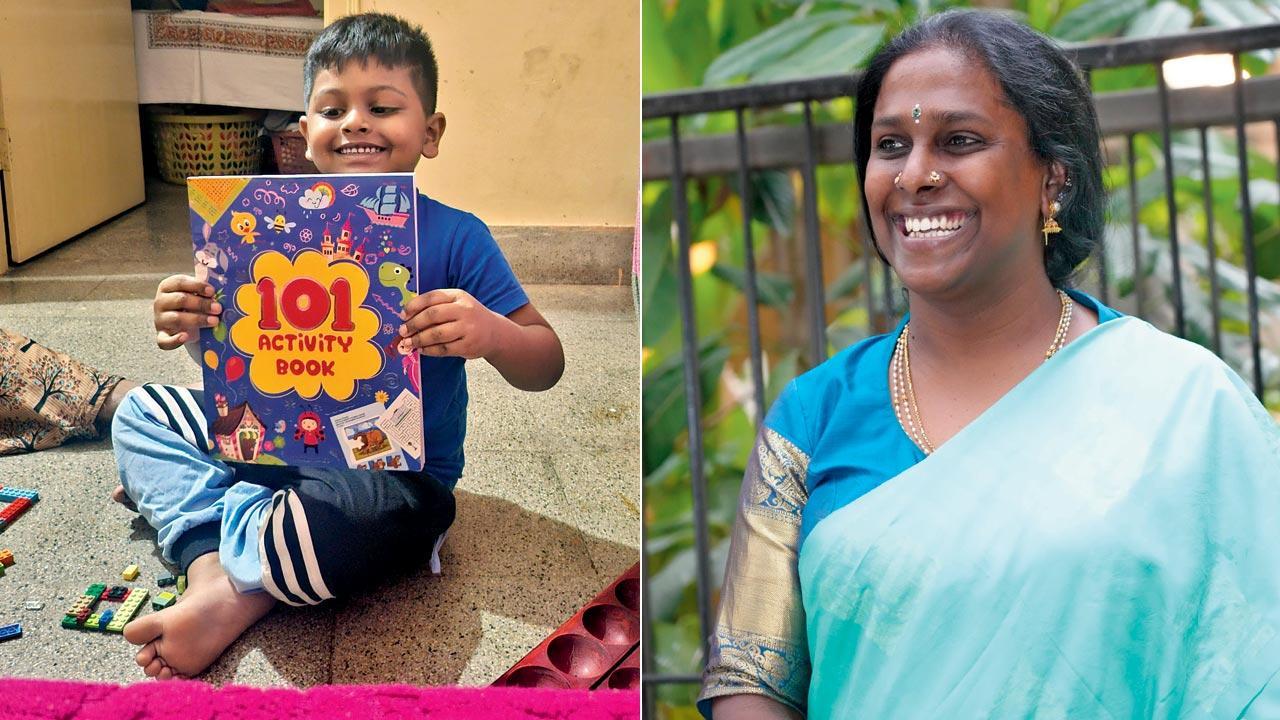Home / Sunday-mid-day / / Article /
I have a right to marry… and divorce
Updated On: 28 July, 2024 08:00 AM IST | Mumbai | Mitali Parekh
Activist and author Dr Akkai Padmashali, the first transgender person in Karnataka to legally register their marriage, walked out of an abusive marriage

Avin Padmashali, 5, is not a boy or a girl; Avin is Avin. They are being raised without being assigned a gender, caste, or religion, and with Dr Akkai Padmashali as their father and mother
Dr Akkai Padmashali wanted to marry to have the complete feminine experience, be the centre of family life like her mother—cook, take care of a home, care for her children and family members to care for; neighbours and extended family dropping in for a chat; celebrations and gatherings.
“My parents were also pressuring me to settle,” says the Bengaluru-based social and political activist, “My gender affirmation surgery was done, including the breast augmentation and hormone replacement therapy. They kept saying, ‘Your younger brother is married and has a child, your sister has also gone to her home… only you are not settled’…”




